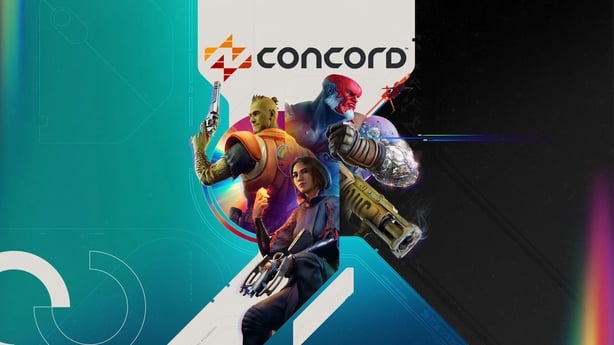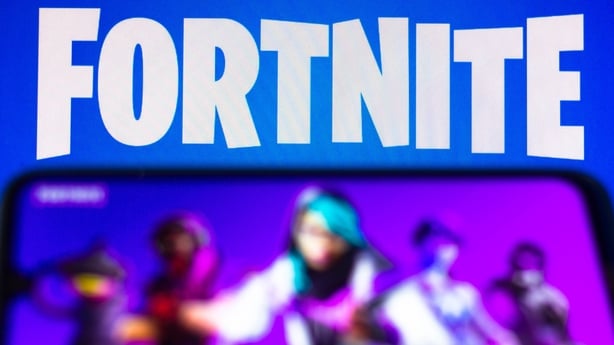It's quite possibly the biggest flop the entertainment industry has ever seen – and there’s a good chance you’ve never heard of it.
Concord was an online multiplayer game published by tech giant Sony.
It was a first-person shooter - essentially action game where you see through the eyes of your character – and it was designed for users to play with (or against) others around the world in real time.
Concord had a futuristic, sci-fi setting – so players could choose human or alien type characters – and was developed by Firewalk Studios.
That was established in 2018 – though people behind the studio were said to have been working on the title for eight years.
Sony came into the picture in April 2023, when it acquired Firewalk Studios.
It was shortly after this that Concord was first shown off to the world, and Sony clearly had high hopes for it.
Sony is one of the world’s biggest gaming brands and, through Playstation, is one of the three big console makers.
It's a competitive market, but one of the ways console makers try to stand out from rivals is by making their own exclusive titles. Think of Mario at Nintendo and Halo at Microsoft’s Xbox division.
Sony already has plenty of exclusives of its own, too, but it saw Concord as being its next big hit – one that would eventually build up into its own franchise with spin-offs, add-ons and sequels.
How much did it cost to make?
We need your consent to load this rte-player contentWe use rte-player to manage extra content that can set cookies on your device and collect data about your activity. Please review their details and accept them to load the content.Manage Preferences
It’s impossible to know exactly how much it cost to make – games studios don’t tend to come out and talk about that kind of thing, even when a game is a hit.
But high-end games like these – what are known as 'Triple-A’ titles - are really akin to big budget movies nowadays.
That’s because they require a fairly decent sized team of quite skilled programmers and animators, audio engineers, writers, voice actors, sound effects expert and testers in order to get made.
And based on the size of the team working on Concord, and the length of time it took for them to turn out a product, industry experts have conservatively estimated that it cost $200m to make.
Some given the prolonged gestation, some have suggested it actually cost as much as $400m to make.
So, what happened to it?
After that extended development period, the game was eventually released on the 23rd of August.
But eleven days later, Sony pulled the plug.
It shut the whole thing down and refunded anyone who had bought it up until that stage.
It was a remarkable decision – one that may never have been made before for such a big release, even in the film world.
And the simple reason for Sony’s move was because the sales were so bad.
In its less-than two weeks on the market, it was said to have sold around 25,000 units worldwide.
In an industry where big games tend to hit sales in the millions in their first week, that’s really bad.
And given that this was an online game, a poor reception is also fatal to how the game actually works.
That’s because you need lots of other people playing at the same time as you in order for it to function the way it’s designed to. Players need to be sure, when they’re logging on, that they’re going to get a game.
But Concord never managed to get more than 700 people playing at any one time – even immediately after its release.
That compares to the hundreds of thousands of people who you’ll find playing other online games at any time of the day.
And bear in mind, this was meant to be a game that would grow and evolve over time – so Sony would have had a team in place to manage all of that even after the initial product had shipped.
But now that work doesn’t exist any more.
So, why did Sony invest so much money into the game?

This was an attempt by Sony to latch onto the ever-growing category of live event or multiplayer games.
And, in fairness, when you get a hit in that category it’s almost like a license to print money.
Online multiplayer games have been around for a long time – you could play games like Age of Empires online back in the late 90s.
But back then online play was kind of a throw-away, add on to a single player game.
Then, slowly, online gaming started becoming an industry of its own.
One of the first major, online-only hits was World of Warcraft, where you paid a monthly subscription fee to be able to connect into this massive online world of warlocks and hunters.
That’s actually still going now – it’s not nearly as popular as it once was but it still costs €13 a month to subscribe.
But that approach almost looks quaint now because the industry has evolved even further, particularly in the past five to ten years.
That’s when games like Fortnite, PUGB and Rocket League started to come on the scene – and completely upend the industry.
Because they make their money not only from subscription fees, but also micropayments for in-game features like accessories, skins and emotes.
And within those games they often hold special, live events to keep things interesting and convince players to keep coming back.
And while back in the day the business model was that you convinced gamers to part with their cash up front, now a lot of these games are actually free to play.
So they lure you in with a free experience, and once you find you’re enjoying it they start to up sell you.
But that’s been extremely lucrative for some…

Yes, absolutely.
Fortnite, for example, is estimated to be taking in more than $6 billion in revenue a year.
That’s from a product that, technically, doesn’t cost you anything to use.
PUBG: Battlegrounds – which was developed by an Irishman – had reportedly generated revenues of $13 billion in the five years after it was released, up to 2022.
It is one of the best-selling games in the world.
Minecraft is 13 years old this year but is still generating hundreds of millions of dollars in revenue for its now owner Microsoft. They could have funded the development of Concord with one year of Minecraft money, and still have something left over.
All of that is to say that, when you get a hit in this area, it can become a multi-billion dollar revenue stream for years, or even decades into the future.
And that’s probably why Sony was willing to put a few hundred million into Concord’s development.
So why was Concord such a failure?
Well like all of these things, there’s not really one factor you can point to as the main culprit for its failure.
Some say it wasn’t well marketed, some say the delay in making the game meant it was already out-dated by the time it came out.
But a big reason has to be the fact that it’s such a competitive market – and there are only so many hours in the day.
These online games have gained a reputation for being a bit of a money-drainer – but they’re a time-drainer too.
If you’re already playing the likes of Fortnite, for example, you’ve probably already "invested" a lot of money in it, but also a lot of your time. Maybe you’re quite good at it, and there’s not much of an incentive for you to go and dedicate your time and money on something new.
So the incumbents have a kind of advantage in this field.
To break through, new online games really need momentum to get going – and people need to know there’s already a community there to play with. Which is a little ‘chicken and egg’.
But if you have a group of friends they play online with, and those friends start to migrate to a new title, you’re more likely to follow them. Or if your favourite Twitch streamer starts playing a new game, and looks to be enjoying it, you’ll be more inclined to give it a go.
But if they stay put with the same game, you probably will to.
Another big factor that made that migration less likely for Concord was the fact that you had to pay to play the game.
The US price was $40.
That’s actually not a huge amount for a game nowadays – but it still presents a barrier for someone who might have been willing to give it a try.
Lots of films with bigger budgets have flopped – how is this worse?

There have been big budget films – with bigger budgets than Concord – which have failed to make that back at the box office.
But they all tend to make some of that money back in the cinema – and then maybe a little bit more from the DVD release, or from streaming rights sales.
Some even eventually become profitable, having technically been a box office flop – Blade Runner and The Big Lebowski are examples of that.
But Concord is different because it has made absolutely no money.
It only registered around $1m in sales – and that has been refunded by Sony.
And the game has been pulled from the market – it’s not something you can even pick up cheap in the bargain bin and try out for yourself. It’s gone.
And even if you still have a copy of it, it’s an online only game –the servers that host the online world have been switched off so it’s unplayable.
That means, at the moment, there’s no chance of it making even a cent of its budget back.
So what happens next?
This is the big question.
Sony is a big enough company to take this kind of write-off on the chin – though I’m sure it would rather not.
There is always a chance it will re-tool the game and re-release it down the line too – maybe as a free to play title, or something else.
But the experience of this failure and the negative press it and its developers have had in the past few weeks will surely make it a very hard sales pitch to convince anyone that this is worth spending their time or money on… never mind the hundreds of thousands (or even millions) of players that would be needed to make it viable.
But whatever happens with Concord, it does represent a really interesting blind-spot that exists in the business and media worlds now.
If this was a $200m, or $400m film by a major studio that went on to flop at the box office, everyone would know about it.
But even though hundreds of millions of people are playing games around the world – and the industry is pulling in revenues well in excess of what Hollywood can manage nowadays – a flop of this size has almost slipped under the radar, outside of the dedicated gaming press.







